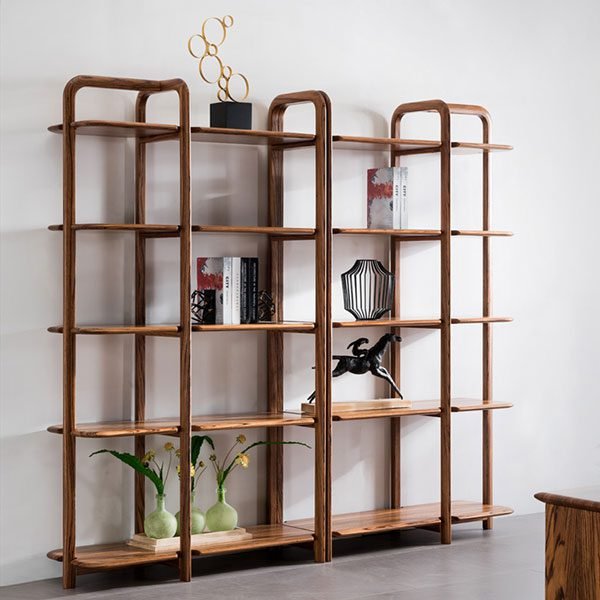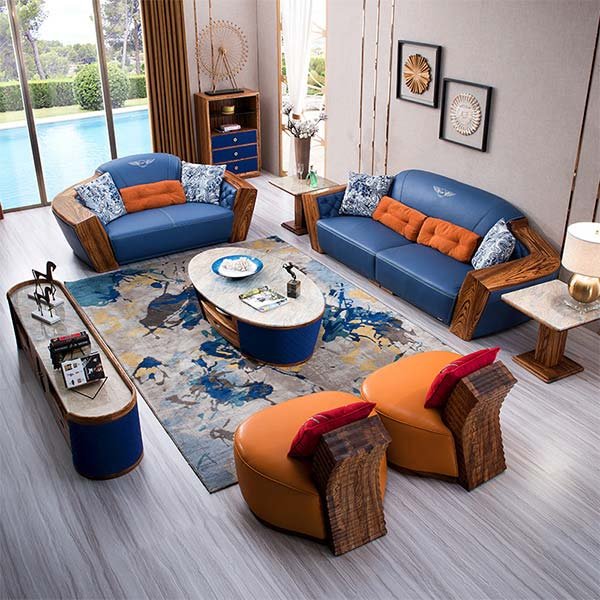“Revolutionize your sourcing with Sofa 2025 – the future of importing.”
Sustainable Sourcing Practices for Sofa Manufacturers
In the ever-evolving world of furniture manufacturing, sustainable sourcing practices have become increasingly important for sofa manufacturers. As consumer awareness of environmental issues grows, there is a growing demand for products that are produced in an environmentally responsible manner. This shift in consumer preferences has led many sofa manufacturers to reevaluate their sourcing strategies and adopt more sustainable practices.
One of the key challenges facing sofa manufacturers is sourcing materials that are both high quality and environmentally friendly. Traditional materials such as wood and leather can have a significant impact on the environment, leading many manufacturers to explore alternative options. One such option is the use of sustainable materials such as bamboo, which is a fast-growing and renewable resource that can be harvested without causing harm to the environment.
In addition to sourcing sustainable materials, sofa manufacturers are also looking for ways to reduce their carbon footprint throughout the manufacturing process. This includes implementing energy-efficient practices in their factories, using eco-friendly packaging materials, and reducing waste through recycling and reusing materials. By taking these steps, manufacturers can not only reduce their impact on the environment but also appeal to environmentally conscious consumers.
Another important aspect of sustainable sourcing practices for sofa manufacturers is ensuring that their suppliers adhere to ethical labor practices. This includes ensuring that workers are paid fair wages, have safe working conditions, and are not exploited in any way. By working with suppliers who prioritize ethical labor practices, manufacturers can ensure that their products are produced in a socially responsible manner.
In order to implement sustainable sourcing practices, sofa manufacturers must carefully evaluate their supply chain and identify areas where improvements can be made. This may involve working closely with suppliers to develop sustainable sourcing agreements, conducting regular audits to ensure compliance with environmental and labor standards, and investing in training programs to educate employees about the importance of sustainability.
One of the key strategies for implementing sustainable sourcing practices is to work with suppliers who share the same values and commitment to sustainability. By forming partnerships with like-minded suppliers, manufacturers can create a network of suppliers who are dedicated to producing high-quality, environmentally friendly products. This can help manufacturers streamline their sourcing process, reduce costs, and improve the overall sustainability of their products.
In conclusion, sustainable sourcing practices are becoming increasingly important for sofa manufacturers as consumer demand for environmentally friendly products continues to grow. By sourcing sustainable materials, reducing their carbon footprint, and ensuring ethical labor practices throughout their supply chain, manufacturers can not only appeal to environmentally conscious consumers but also contribute to a more sustainable future for the furniture industry. By taking these steps, sofa manufacturers can position themselves as leaders in sustainable sourcing practices and set themselves apart in a competitive market.
Emerging Trends in Sofa Design and Materials
As we look towards the future of sofa design and materials in 2025, it is important for importers to stay ahead of the curve and adapt their sourcing strategies to meet the changing demands of consumers. With advancements in technology and a growing focus on sustainability, the landscape of sofa design is constantly evolving. In this article, we will explore some emerging trends in sofa design and materials, and provide insights on how importers can navigate these changes to stay competitive in the market.
One of the key trends that we are seeing in sofa design is a shift towards more modular and customizable pieces. Consumers are increasingly looking for furniture that can adapt to their changing needs and lifestyles, and modular sofas offer the flexibility to reconfigure the layout to suit different spaces. Importers should consider sourcing modular sofa systems that can be easily assembled and disassembled, allowing for easy transportation and customization.
In addition to modularity, sustainability is also a major driving force in the design of sofas in 2025. Consumers are becoming more conscious of the environmental impact of their purchases, and are seeking out furniture made from eco-friendly materials. Importers should prioritize sourcing sofas that are made from sustainable materials such as FSC-certified wood, recycled fabrics, and non-toxic finishes. By aligning with consumer values around sustainability, importers can differentiate their products in the market and appeal to a growing segment of environmentally-conscious consumers.
Another emerging trend in sofa design is the integration of technology. In 2025, consumers are looking for sofas that can enhance their living experience through smart features such as built-in USB ports, wireless charging capabilities, and integrated speakers. Importers should consider sourcing sofas that are equipped with these technological features to meet the demands of tech-savvy consumers. By offering sofas that seamlessly integrate technology into the design, importers can cater to a growing market of consumers who value convenience and connectivity in their furniture.
As importers navigate these emerging trends in sofa design and materials, it is important to consider the impact of global supply chain disruptions on sourcing strategies. The COVID-19 pandemic has highlighted the vulnerabilities of relying on a single source for manufacturing, and importers should diversify their supplier base to mitigate risks and ensure continuity of supply. By working with multiple suppliers in different regions, importers can reduce their exposure to disruptions and maintain a competitive edge in the market.
In conclusion, the future of sofa design in 2025 is characterized by modularity, sustainability, and technology. Importers should adapt their sourcing strategies to align with these emerging trends and meet the changing demands of consumers. By prioritizing modular and customizable designs, sustainable materials, and technological features, importers can differentiate their products in the market and appeal to a growing segment of environmentally-conscious and tech-savvy consumers. By diversifying their supplier base and staying ahead of global supply chain disruptions, importers can position themselves for success in the evolving landscape of sofa design.
Cost-effective Strategies for Sofa Importers in 2025
In the ever-evolving world of international trade, sofa importers are constantly seeking cost-effective strategies to stay competitive in the market. As we look ahead to 2025, it is crucial for importers to adapt to changing trends and consumer demands in order to maximize profits and minimize expenses. In this article, we will explore some key sourcing strategies that sofa importers can implement to ensure success in the coming years.
One of the most important factors to consider when sourcing sofas in 2025 is the rising cost of raw materials and labor. With global economic conditions constantly fluctuating, importers must be proactive in finding ways to reduce production costs without compromising on quality. One strategy that has gained popularity in recent years is diversifying sourcing locations. By sourcing sofas from multiple countries, importers can take advantage of lower labor costs and access a wider range of materials, ultimately reducing production expenses.
Another cost-effective strategy for sofa importers in 2025 is to leverage technology to streamline sourcing processes. With advancements in artificial intelligence and data analytics, importers can now more easily track and analyze market trends, supplier performance, and production costs. By utilizing these tools, importers can make more informed decisions when selecting suppliers and negotiating contracts, ultimately saving time and money in the long run.
Furthermore, in order to stay competitive in the market, sofa importers must prioritize sustainability and ethical sourcing practices. With consumers becoming increasingly conscious of environmental and social issues, importers who prioritize sustainability will not only attract more customers but also reduce long-term costs associated with compliance and reputation management. By partnering with suppliers who adhere to strict environmental and labor standards, importers can ensure that their products are ethically sourced and environmentally friendly, ultimately enhancing their brand image and market position.
In addition to diversifying sourcing locations, leveraging technology, and prioritizing sustainability, sofa importers in 2025 should also consider implementing just-in-time inventory management practices. By closely monitoring demand and adjusting production schedules accordingly, importers can reduce excess inventory and storage costs, ultimately improving cash flow and profitability. Just-in-time inventory management also allows importers to respond quickly to changing market conditions and consumer preferences, ensuring that they stay ahead of the competition.
In conclusion, the key to success for sofa importers in 2025 lies in implementing cost-effective sourcing strategies that prioritize efficiency, sustainability, and innovation. By diversifying sourcing locations, leveraging technology, prioritizing sustainability, and implementing just-in-time inventory management practices, importers can reduce production costs, improve product quality, and enhance their competitive edge in the market. As the global economy continues to evolve, it is essential for sofa importers to adapt to changing trends and consumer demands in order to thrive in the years to come.
Conclusion
In conclusion, implementing effective sourcing strategies for importing sofas in 2025 is crucial for importers to stay competitive in the market. By focusing on factors such as cost efficiency, quality control, and sustainability, importers can ensure a successful sourcing process and meet the demands of consumers in the evolving furniture industry.



